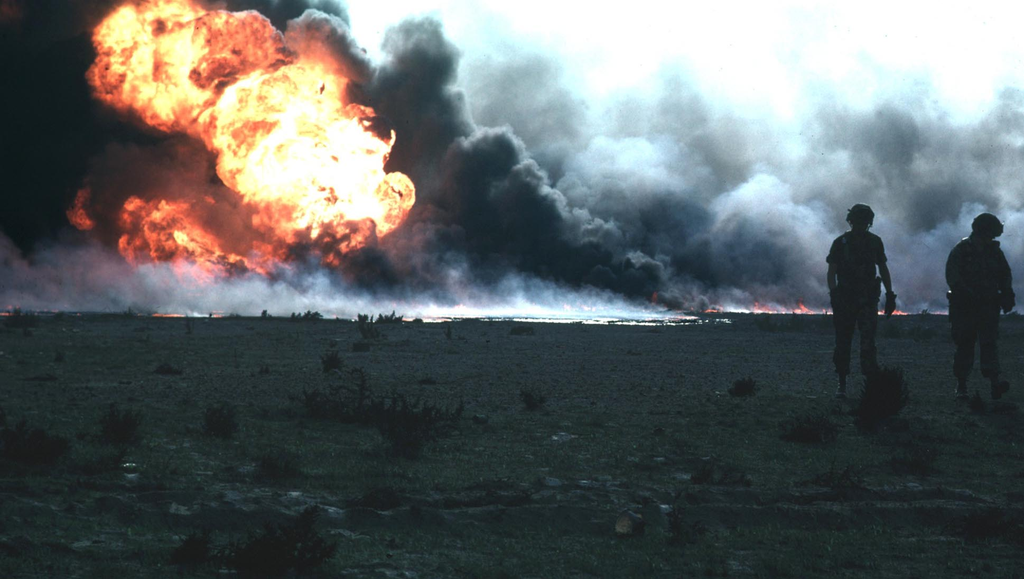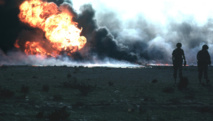This is especially important since many screaming headlines in the media have been wrong in recent times, says petroleum geologist Jeffrey Brown.
As for the fact that world oil production has ceased to grow over the past decade, despite the trillions of dollars that companies have invested in an effort to increase production, then on the basis of this fact, Brown predicts a new export land model.
In his new export model, he describes the process by which the growth of domestic consumption can lead (and such cases actually exist) to the fact that many of the largest exporters of oil will turn to importers for quite a short time.
That's what Brown says about his model:
An important fact that needs to be understood about what happened after 2005 is that world production of gas and gas condensate rose sharply. The growth of oil and condensate was considerably lower.
What happened in my opinion: oil production has leveled off, and condensate production, associated with the extraction of gas, continued to grow.
Therefore, when we ask about the price of oil, we get an answer on the price of Brent or WTI. However, when we ask about the amount of oil, we obtain data on the production of a number of oil brands, condensate, liquid hydrocarbons, biofuels, etc.
Thus, a replacement of concepts has taken place, yet the replacement was only fragmentary.
Real, physical volumes of oil production are likely to remain unchanged from 2005.
Trillions of dollars to keep oil production at the current level have been spent over the past 10 years.
Thus, we actually saw an increase in liquids hydrocarbons production. And I think, with regard to oil, that we have already passed the peak of oil production, despite the trillions of dollars invested in production.
At the end of 2005, I thought about what would happen with the exporting countries, given the decline in production and rising consumption.
Then I built up a simple model. I took a peak production of about 2 million barrels per day, and the peak consumption - 1 million barrels per day, and suggested that production will decrease by 5% per year – just about as in the case of production in the North Sea. Besides, I had suggested that consumption grew by 2.5% per year.
This model showed that net exports would come down to zero in just nine years, despite a modest decline in production.
Thus, it is very easy to calculate. Given the constant and inevitable decline in production and suggesting that exporting countries do not reduce domestic oil consumption at the same or a faster rate than the rate of decline in production, it is a mathematical certainty that the decline in the net exports will exceed the rate of decline of production. Moreover, these rates will rise.
source: kunstler.com
As for the fact that world oil production has ceased to grow over the past decade, despite the trillions of dollars that companies have invested in an effort to increase production, then on the basis of this fact, Brown predicts a new export land model.
In his new export model, he describes the process by which the growth of domestic consumption can lead (and such cases actually exist) to the fact that many of the largest exporters of oil will turn to importers for quite a short time.
That's what Brown says about his model:
An important fact that needs to be understood about what happened after 2005 is that world production of gas and gas condensate rose sharply. The growth of oil and condensate was considerably lower.
What happened in my opinion: oil production has leveled off, and condensate production, associated with the extraction of gas, continued to grow.
Therefore, when we ask about the price of oil, we get an answer on the price of Brent or WTI. However, when we ask about the amount of oil, we obtain data on the production of a number of oil brands, condensate, liquid hydrocarbons, biofuels, etc.
Thus, a replacement of concepts has taken place, yet the replacement was only fragmentary.
Real, physical volumes of oil production are likely to remain unchanged from 2005.
Trillions of dollars to keep oil production at the current level have been spent over the past 10 years.
Thus, we actually saw an increase in liquids hydrocarbons production. And I think, with regard to oil, that we have already passed the peak of oil production, despite the trillions of dollars invested in production.
At the end of 2005, I thought about what would happen with the exporting countries, given the decline in production and rising consumption.
Then I built up a simple model. I took a peak production of about 2 million barrels per day, and the peak consumption - 1 million barrels per day, and suggested that production will decrease by 5% per year – just about as in the case of production in the North Sea. Besides, I had suggested that consumption grew by 2.5% per year.
This model showed that net exports would come down to zero in just nine years, despite a modest decline in production.
Thus, it is very easy to calculate. Given the constant and inevitable decline in production and suggesting that exporting countries do not reduce domestic oil consumption at the same or a faster rate than the rate of decline in production, it is a mathematical certainty that the decline in the net exports will exceed the rate of decline of production. Moreover, these rates will rise.
source: kunstler.com



















